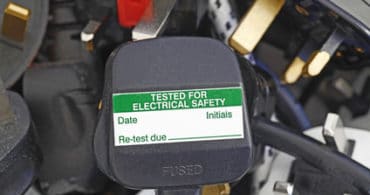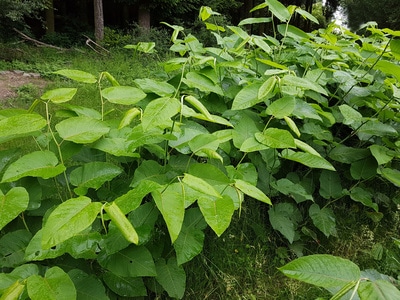Japanese Knotweed: What Every Landlord Needs to Know
Everyone, including landlords, has a responsibility to prevent harmful, invasive plants and non-native species from spreading and causing damage to the environment and threatening livestock. This includes the infamous Japanese knotweed. Here’s what the government says should be done to control and dispose of plants that have the potential to damage the environment.
Landlords are quite within their rights to expect tenants to take reasonable care over their gardens. However, there are certain plants that may prove difficult to control. Invasive species such as the infamous Japanese knotweed can prove very risky, but the responsibility lies with the landlord to keep such plants under control. Let’s take a look at what the government says should be done to control and dispose of plants that have the potential to damage the environment.
Everyone, including landlords, has a responsibility to prevent harmful, invasive plants and non-native species from spreading and causing damage to the environment and threatening livestock.
The government says that we have a legal duty to prevent invasive plants on our land from spreading to the wild and causing a nuisance, and to prevent harmful weeds from spreading to a neighbour’s property.
This is a very serious requirement. A fine of up to £5,000, or two years’ imprisonment, are the potential punishments if you fail to meet it.
What is the law on harmful plants?
It is an offence to plant or cause certain invasive or non-native plants to grow in the wild. You must avoid the movement of plant cuttings, or soil that such plants have been growing in.
The Anti-social Behaviour, Crime and Policing Act 2014 covers invasive non-native plants, including Japanese knotweed.
Further, under Schedule 9 of the Wildlife and Countryside Act 1981, it is an offence to cause Japanese knotweed to grow in the wild.
Whilst it is not against the law to have Japanese knotweed in your garden, you are responsible for controlling it so that it does not turn into a more widespread, neighbourhood problem. You could be prosecuted if the plant has a ‘detrimental effect of a persistent or continuing nature on the quality of life of those in the locality’.
For this reason, it is vital to able to identify Japanese knotweed, and take steps to control it.
What is the problem with Japanese knotweed?
Japanese knotweed is a weed that spreads very quickly. In winter, the plant dies back to ground level, but by early summer the bamboo-like stems emerge from deep underground and shoot to more than two metres in height, suppressing all other plant growth.
The plant is known to cause damage to property, and is extremely difficult to eradicate.
If you are in the process of buying a property to let, then any presence of Japanese knotweed will be stated in the responses to the TA6 form. If you are borrowing to fund your purchase and Japanese knotweed has been identified as present, then your mortgage lender will require guarantees that the plant has been eradicated before they agree to release the funds.
Similarly, most buildings insurance providers will not cover damage caused by this plant. If you fail to disclose that Japanese knotweed is present, then you may find yourself without cover for other damage, even if it wasn’t caused by the knotweed.
How to control Japanese knotweed?
If you have a small, isolated clump of knotweed, then you may be able to tackle its removal using chemical control.
However, it is more likely that you will need to employ the services of a specialist company, which will ensure permanent eradication and correct disposal of the plant at a licenced landfill site.
If you attempt to dig out this deeply penetrating plant without the help of a professional, then you will face the issue of disposal, as Japanese knotweed is classed as ‘controlled waste’ under the Environmental Protection Act 1990.
Japanese knotweed must NEVER be included with regular household waste or put into green waste collection schemes.
This is why specialist Japanese knotweed contractors have to be registered waste carriers, so they are able to safely remove the weed from site. These contractors can also provide risk reports for mortgage purposes.
Useful contacts and resources
The Royal Horticultural Society (RHS) provides a comprehensive resource on Japanese knotweed.
The government provides guidance on preventing non-native plants from spreading.
The Royal Institution of Chartered Surveyors (RICS) has worked with the Property Care Association (PCA) to form the PCA Invasive Weed Control Group (IWCG) trade body for Japanese knotweed specialists, which provides a register of vetted consultants and contractors.
Invasive Non-native Specialists Association (INNSA) maintains a membership list of contractors and consultants phone 0800 1300 485.
The British Association of Landscape Industries (BALI) provides a directory of members offering invasive weed control.
Trustmark Government Endorsed Standards has a ‘Find a Tradesman’ scheme including invasive weed controllers.
Looking to offload your property management responsibilities?
As a landlord, dealing with the likes of invasive plants is just one of the many responsibilities you face.
If you would rather delegate some of these responsibilities, including legal obligations as well as sourcing and referencing tenants, property repairs and maintenance, and all the other daily tasks, homes2let has just the service you need. What’s more, it all comes as part of a convenient and highly reassuring guaranteed rent scheme.
To learn more, you are welcome to get in touch with our helpful, expert team which amongst them has many years of experience in property lettings.
Related Insights

New Private Rented Sector Electrical Safety Standards Explained
Property management companies across England are talking about the new electrical safety standards introduced on 1 July 2020. Here we explain what’s involved in the new Regulations, and the latest obligations residential landlords face when it comes to electrical safety.

Boiler Breakdown Cover: A Guide for Landlords
One of the most costly and time consuming issues for any landlord has to be dealing with boiler callouts. One way of avoiding surprise costs and all the hassle associated with boiler repairs is to take out landlord boiler breakdown cover. Here’s how it works, what it includes, what it doesn’t include, and what to consider when arranging cover.

Energy Efficiency Regulations: Changes on the Horizon
Since 1 April 2020, it has been law for landlords to ensure all their privately rented properties reach a minimum E-rating for energy performance. This includes all new and existing tenancies. Measures are now being put in place to enforce compliance, and plans are afoot to increase the rating requirement from ‘E’ to ‘C’ for all new tenancies from 2025 and all existing tenancies from 2028.







